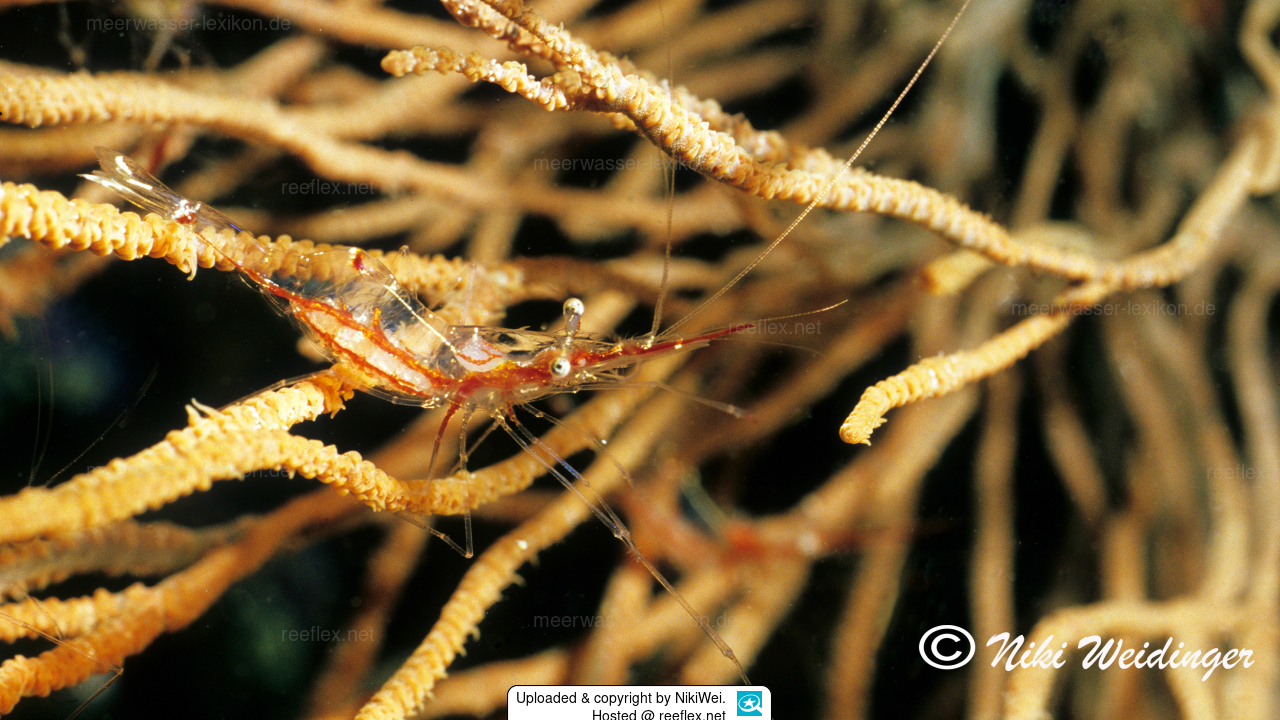Info
Manipontonia psamathe (de Man, 1902)
The shrimp lives commensally on gorgonians such as Pseudopterogorgia americana and various whip corals (Junceella sp.) as well as with hydroids, gorgonians, alcyonarians and antipatharians.
The internal organs of this shrimp are red. The purpose of a translucent body is a protective function so that predators cannot pinpoint the shrimp and classify it as edible.
These shrimps are sometimes infested by a parasitic worm (highly problabe Nectonema melanocephalum). For the time being, we list this parasite in the saltwater lexicon as Fecampiida sp. This worm fills almost the entire body of the shrimp host, lives and moves inside it until the worm leaves its host (see link).
There are numerous photos on the internet showing that this parasite is very common in the shrimp Manipontonia psamathe.
Unfortunately, the effect on the shrimp is not known.
They only use their hosts to hide from predators and feed on plankton particles from the surrounding water current
Etymology. The species is named after the location where the type specimen was found, the Persian Gulf, Iran.
Synonyms:
Periclimenes psamathe (De Man, 1902)
Urocaris psamathe De Man, 1902
The shrimp lives commensally on gorgonians such as Pseudopterogorgia americana and various whip corals (Junceella sp.) as well as with hydroids, gorgonians, alcyonarians and antipatharians.
The internal organs of this shrimp are red. The purpose of a translucent body is a protective function so that predators cannot pinpoint the shrimp and classify it as edible.
These shrimps are sometimes infested by a parasitic worm (highly problabe Nectonema melanocephalum). For the time being, we list this parasite in the saltwater lexicon as Fecampiida sp. This worm fills almost the entire body of the shrimp host, lives and moves inside it until the worm leaves its host (see link).
There are numerous photos on the internet showing that this parasite is very common in the shrimp Manipontonia psamathe.
Unfortunately, the effect on the shrimp is not known.
They only use their hosts to hide from predators and feed on plankton particles from the surrounding water current
Etymology. The species is named after the location where the type specimen was found, the Persian Gulf, Iran.
Synonyms:
Periclimenes psamathe (De Man, 1902)
Urocaris psamathe De Man, 1902







 NikiWei
NikiWei










